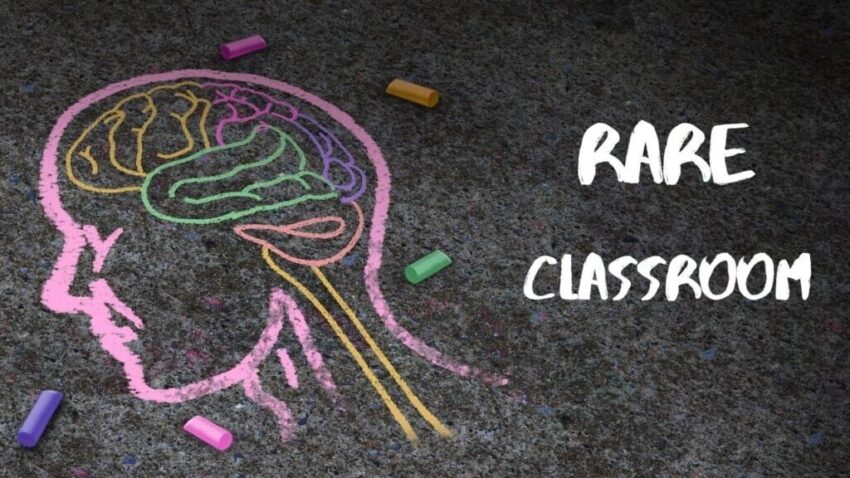Welcome to the Rare Classroom, a new series from Patient Worthy. Rare Classroom is designed for the curious reader who wants to get informed on some of the rarest, most mysterious diseases and conditions. There are thousands of rare diseases out there, but only a very small number of them have viable treatments and regularly make the news. This series is an opportunity to learn the basics about some of the diseases that almost no one hears much about or that we otherwise haven’t been able to report on very often.
Eyes front and ears open. Class is now in session.
The disease that we will be learning about today is:
Adult Growth Hormone Deficiency
What is Adult Growth Hormone Deficiency?
- Growth Hormone Deficiency in Adults can be an extremely difficult process to diagnose. Adult growth hormone deficiency (AGHD) is a recognized clinical syndrome associated with debilitating symptoms affecting quality of life, psychosocial functioning and a number of metabolic abnormalities.
- AGHD is characterized by diminished growth hormone (GH) secretion by the pituitary gland.
- GH deficiency in adults results from permanent damage to the pituitary gland, which may have occurred in childhood or adulthood.
- GH is a powerful brain hormone that is believed to play an important role in stimulating and controlling areas of the brain that regulate moods and emotions.
- Until recently adult GH deficiency was largely ignored. However it is now clear that adults with untreated GH deficiency are both physically and psychologically compromised and derive substantial and often dramatic benefit from GH replacement.
- The very real prospect of lifetime GH replacement in adults means that careful monitoring of those receiving treatment must be undertaken and research to ensure its efficiency and safety must be continued.
- About 6,000 cases of AGHD are reported each year in the United States; 50,000 patients estimated in total
- In other areas of the world, the incidence and prevalence of AGHD are not known, and awareness and diagnosis remains low.
How Do You Get It?
- Adult-onset GHD is most often is acquired from a pituitary tumor or trauma to the brain but may also be idiopathic (without known cause).
- Risk factors include:
- Head trauma
- History of surgery in the pituitary area/base of skull
- History of radiation therapy in the pituitary area/base of skull
- GH deficiency in adults results from permanent damage to the pituitary gland, which may have occurred in childhood or adulthood. Interference in the production of GH from the pituitary gland is most commonly caused by a pituitary tumor.
What Are The Symptoms?
- Adult growth hormone deficiency is more difficult to detect compared to cases involving children
- The deficiency of growth hormone in adults can be appreciated by looking at body composition.
- Since growth hormone maintains a proper amount of fat, muscle and bone, these important parts of our bodies are not nurtured properly and change in an unhealthy direction.
- With this deficiency, fat is deposited more easily, especially around the middle of the abdomen, what doctors call visceral or abdominal fat.
- Since growth hormone affects muscles, they also change for the worse, which means there is less muscle and less ability to exercise.
- Bones, too, participate in the deficiency by becoming weaker (osteoporosis). This combination of more fat, less muscle and less bone structure represents the body composition changes as the result of growth hormone deficiency in adults.
- People with growth hormone deficiency think they feel normal, but do not remember the way they felt before they developed the deficiency.
- It is important to remember that these emotional changes are not usually directly related to actual life events and therefore are difficult to anticipate.
- A full spectrum of symptoms can include:
- Fatigue
- Low exercise tolerance
- Lack of motivation
- Anxiety
- Irritability
- Reduced sex drive
- Depression
- Problems with work or relationships
- Social isolation
- Weight gain
- Dry, thinned skin
- Weakness
- Loss of muscle mass
How Is It Treated?
- Once a physician has proven GH deficiency, he or she will begin the patient on a small dose of GH and slowly raise the dose until a final maintenance dose is reached.
- Growth hormone is given by injection. It is given daily underneath the skin into fat tissues.
- The dose of growth hormone will be calculated by your doctor. The dose may change depending upon your responses and blood tests taken to monitor therapy.
- The most commonly reported side effects are muscle aches, joint discomfort, headaches and swelling of the hands and feet.
- Generally a much lower dose is given for adults in comparison to child patients.
- Regular doses of GH can help improve many of the most common symptoms.
Where Can I Learn More???
- Check out our cornerstone on this disease here.
- Learn more about this disease from the MAGIC Foundation.







